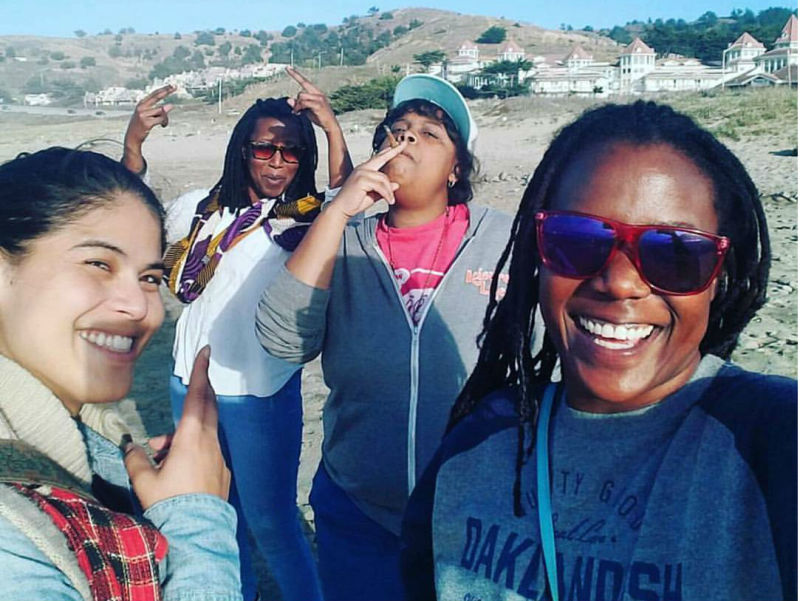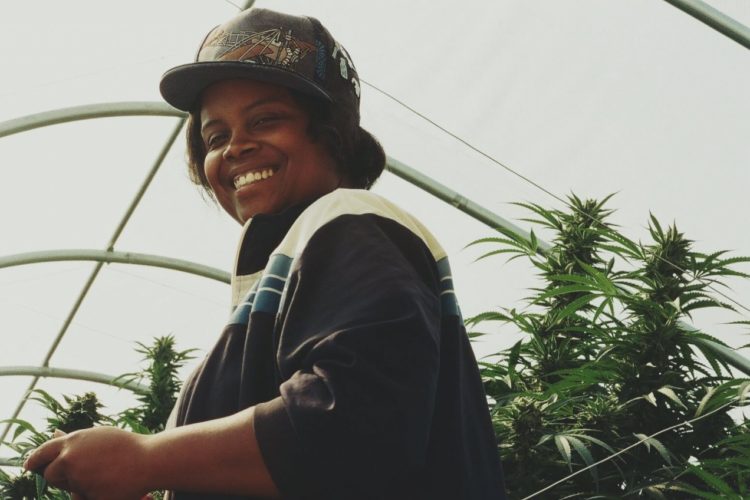This installment of our Journey to Licensure series is brought to you by equity advocate and ganjapreneur extraordinaire, Amber Senter. The founder of Leisure Life and co-founder of Supernova Women was recently awarded a highly coveted dispensary license in the City of Oakland. It was truly the luck of the draw, as the selection was made by lottery, but Amber and her associates are employing hard work and expertise to become a force within Oakland’s rapidly expanding greenscape.
Not only is Senter a successful businesswoman, she’s also a staunch equity advocate within the cannabis industry. EstroHaze was privileged to converse with Amber once again, this time discussing her experience with the arduous process of local dispensary licensing.
She and her equity applicant partner have a 90-day window to complete the steps necessary to receive local approval and obtain a state license - the ultimate green light to and get their dispensary up and running.
You and your equity partner were awarded a dispensary license on Jan 31. Please, tell us more about that process.
The lottery was only available to equity applicants that were applying for a dispensary in Oakland. The way the equity program works, as far as dispensaries are concerned, is that the equity applicant must own at least 50% of the business. Essentially, it’s a 50-50 partnership between the equity applicant and the other partner, which in this case, was me.
I found an equity partner named Marshall Crosby. We applied for a dispensary license and submitted all documentation to the City of Oakland. They review the applications received in the open enrollment process and weed out all ineligible applications. From this final pool of equity applicants, the lottery was created.
A bunch of numbered ping-pong balls were placed in a tumbler. All of the equity applicants were assigned corresponding numbers. They mixed the tumbler and pulled 38 numbers out. The four remaining numbers were the winners and one of them happen to be ours.
That must’ve been an unreal experience. What was the cultural breakdown of the other winners?
Of the four equity winners, three were Black and one was Chinese. Of the general pool, there was one winner of color. Currently, there’s only one Black dispensary owner in Oakland: Keith Stephenson of the Purple Heart Patient Center. He wasn’t just the first Black owner, but the first dispensary owner in the entire city. Eventually, 7 more dispensaries were added but none of them were run by people of color. I’m really glad the equity program is bringing POC back into ownership.
Were you eligible to apply for equity status?
No. The way the equity program works in Oakland is that you have to reside within one of the specified police beats that was disproportionately affected by the War on Drugs for 10 of the last 20 years, or you have to have a previous cannabis conviction in Oakland. I’m not from Oakland, I am from Chicago and I have never had a cannabis conviction.
Now that you’ve won the license to operate your own dispensary, what’s next?
Well, there are a lot of things happening right now. The City of Oakland awarded four equity applicants and four general applicants dispensary licenses. They’re actually temporary licenses right now because in order to receive an actual license, you have to secure a building and go through a public hearing process.
We all have 90 days (the city will give you an extension if needed) to go and find a building. And within the 90 days we all must show a letter of intent, a deed, or a lease, basically authorization from the landlord or proof that we own the building. Getting a dispensary is a process. Not only do you have to find a location that’s going to work monetarily, you have to determine if it’s it going to have enough foot traffic, adequate parking, and be conveniently located.
You have to have the funding to get the place locked down and everything, plus you’ve got the challenge of getting the neighborhood on your side because when you have a public hearing and haven’t done your due diligence in the neighborhood (meaning you haven’t gone out to meet the neighbors in the district, gotten their feedback and come to certain agreements) they can come out in full force and shut you down. This is something that happens extensively. There are a number of things at play in this process. It’s definitely huge that we won but now it’s time to get to work.

Have you found a location for the dispensary?
No, we’re still looking.
Does the dispensary have a name yet?
No, it does not. The name is contingent upon the location.
You need a city and state license to legally operate. Is the state license contingent upon the hearing process?
The public hearing process is not necessary for the state. The state looks at what you’ve gotten locally and then it says, “Okay, you’ve received your local license now we can issue your state license.” You have to apply for a separate state license, however, and go through all those hoops too.
How long do you estimate it will take to get the dispensary up and running?
Once we’ve gotten the building and gone through the public hearing process, I would say about 8-9 months. It really depends on the condition of the space we acquire. Some places are pretty turn-key, and we could move in and open up right away. There are many spaces, though, that require a lot of build-out.
Are you in the process of having Leisure life and California Rolls licensed under the new regulatory laws?
We are already licensed. We don’t have the annual permit because those haven’t been issued yet, but we do have our temporary state license for manufacturing and distribution.

With everything going on, do you have time to dedicate to Supernova Women?
Yes. We have a lot going on right now. We recently attended a career fair/expungement clinic and issued a podcast. On May 19 we’re hosting a Coffee and Cannabis event in San Francisco where we’ll discuss civic engagement (which is something I’ve had to do a whole lot of these past few months). It’s basically teaching people how to engage with regulators, law makers, legislators, how [civic engagement] works and the importance of it.
The equity movement is really taking shape across the country and Oakland has been leading the way.
Oakland did it first. Other cities look at our [equity] program, then tweak and improve it to make their own; that’s what they should be doing.
What is the biggest challenge of being one of the lucky few to have been awarded a dispensary license?
This biggest challenge will be being able to actually open this place. It’s tough for everybody right now. Real estate is not easy in the Bay Area. It’s just challenging all around. And the fight’s not over once you’ve opened. There are going to be 8 dispensaries added to the existing 8, so now they’ll be 16, and that’s just here in Oakland. They’ll be adding another 8 next year. San Francisco is also going to be crazy because there is no limit to the number of dispensaries that can open. It’s going to be very competitive.
What are some of the lessons you’ve learned along the way?
I’ve learned a lot: how to be very diplomatic and how to come to resolutions. Partnerships are not easy but as long as everyone is working toward the common goal, it’s worth it. I was managing a dispensary 2 years ago; now I’ve got my own and it’s pretty awesome but it definitely comes with its fair share of challenges and lessons learned.
What advice can you share with folks who seek to apply for a dispensary license, or any other cannabis-related enterprise?
Do what you’re good at. Don’t give up, be very persistent and have some grit because you’re gonna need it.
Stay tuned for Part Two of our discussion with Amber as we will discuss the progress of this latest venture - and much more…

